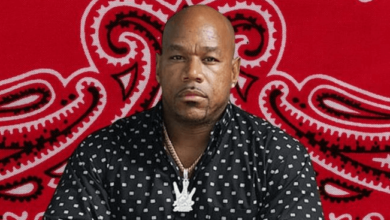The Ex Husband Revenge: How to Navigate the Drama After a Breakup

The emotional aftermath of a breakup, particularly involving an ex-husband, often stirs a complex mix of feelings, including resentment and the allure of revenge. While these emotions are natural, allowing them to govern your actions can lead to further turmoil. Establishing clear boundaries and communicating effectively can help navigate this challenging landscape. However, understanding the nuances of these strategies is crucial. What steps can you take to reclaim your sense of self and foster resilience in the face of such drama? The answers may surprise you.
Understanding the Emotional Impact
A significant percentage of individuals experience a profound emotional impact following a breakup, often characterized by feelings of sadness, anger, and confusion.
Emotional healing is crucial during this challenging time. Implementing effective coping strategies, such as journaling, seeking support from friends, or engaging in physical activity, can facilitate recovery.
Embracing this healing journey fosters personal growth and ultimately leads to newfound freedom and resilience.
See also: The Ex Husband Revenge by Dragonsky PDF: A Tale of Drama and Betrayal
Recognizing Revenge Fantasies
Many individuals experience revenge fantasies after a breakup, often as a response to feelings of hurt and betrayal.
These thoughts can be triggered by specific events or interactions, leading to elaborate fantasy scenarios where one imagines retaliating against their ex.
Recognizing these revenge triggers is essential for emotional healing, allowing individuals to redirect their energy toward more constructive and empowering paths.
Setting Healthy Boundaries
After experiencing the tumult of revenge fantasies, individuals often find it necessary to establish a sense of stability and control in their emotional lives.
Setting healthy boundaries is crucial.
Consider the following boundary types and examples:
- Physical boundaries (e.g., personal space)
- Emotional boundaries (e.g., sharing feelings)
- Time boundaries (e.g., scheduling interactions)
- Material boundaries (e.g., sharing possessions)
- Digital boundaries (e.g., social media limits)
Communicating Effectively
How can individuals communicate effectively in the aftermath of a breakup? Embrace active listening to understand your ex’s perspective while practicing assertive expression to convey your feelings clearly.
This balance fosters mutual respect and reduces misunderstandings. Prioritize calm, respectful dialogue, allowing both parties to voice their thoughts and emotions without escalation.
Such communication enhances freedom from emotional burdens, paving the way for healing.
Avoiding Common Pitfalls
Navigating the emotional landscape following a breakup can be challenging, and effective communication is just the beginning.
To avoid common pitfalls, focus on:
- Practicing emotional detachment to gain perspective
- Prioritizing conflict resolution over blame
- Setting clear boundaries
- Avoiding rehashing past grievances
- Engaging in self-care to maintain emotional health
These strategies will help you regain control and foster a healthier post-breakup dynamic.
Finding Support Systems
Emotional resilience becomes crucial during the tumultuous period following a breakup, and establishing a robust support system can significantly ease this transition.
Engage with support groups tailored for individuals in similar situations, as they provide invaluable insights and camaraderie.
Additionally, lean on your friendship networks; trusted friends can offer emotional comfort and practical advice, empowering you to reclaim your freedom and navigate this challenging chapter.
Focusing on Self-Care
Prioritizing self-care is essential for anyone navigating the aftermath of a breakup, as it lays the foundation for healing and personal growth.
Embrace self-love practices and mindfulness techniques to nurture your well-being:
- Journaling your thoughts
- Engaging in physical activity
- Practicing meditation or deep breathing
- Setting healthy boundaries
- Indulging in hobbies you love
These actions empower you to reclaim your freedom and foster resilience.
Rebuilding Your Identity
Emerging from a breakup often involves a profound reassessment of one’s identity, as the relationship dynamics that once defined you may no longer apply. This identity transformation can spark a self-discovery journey, allowing you to explore who you truly are. Below is a table to guide your reflections:
| Key Areas | Reflection Questions | Action Steps |
|---|---|---|
| Values | What do I value most now? | Create a values list |
| Interests | What activities excite me? | Try new hobbies |
| Goals | What do I want to achieve? | Set short-term goals |
| Strengths | What are my unique strengths? | List and embrace them |
| Identity | Who am I beyond the relationship? | Journal your thoughts |
Embracing a New Future
Embracing a new future after a breakup involves setting meaningful goals that reflect your aspirations and values.
This is also an opportunity to cultivate healthy relationships that support your growth and well-being.
Setting New Goals
After a breakup, many individuals find themselves at a crossroads, faced with the opportunity to redefine their lives and aspirations.
Setting new goals can drive personal growth and create a sense of freedom.
Consider these steps to embark on your journey:
- Identify passions
- Set realistic milestones
- Embrace new experiences
- Cultivate self-discipline
- Reflect and adjust regularly
These strategies empower you to thrive post-breakup.
Building Healthy Relationships
The journey of personal growth following a breakup often opens the door to new possibilities in relationships.
Embracing these changes requires a focus on trust building and understanding relationship dynamics.
Prioritizing open communication and shared values fosters freedom, allowing you to explore connections that enhance your life.
Conclusion
Navigating the aftermath of a breakup with an ex-husband necessitates a careful approach to emotional well-being and personal growth. Establishing healthy boundaries and fostering effective communication can mitigate conflicts and promote understanding. As the adage goes, “Time heals all wounds,” emphasizing the importance of patience in the healing process. By prioritizing self-care and reflecting on personal identity, individuals can transform their experiences into opportunities for growth, ultimately embracing a brighter and more fulfilling future.






